UN criticises Swiss asylum plans
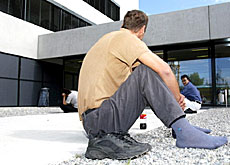
The United Nations refugee agency has told Switzerland that it is “seriously concerned” about plans to tighten the country’s asylum policy.
It follows similar criticism last week from numerous aid organisations and churches.
The Geneva-based UNHCR said some of the measures submitted by the Federal Refugee Office ran contrary to the “spirit and letter” of the 1951 Refugee Convention.
“The proposals appear to be made at a time when the number of asylum seekers has dropped substantially across almost all of Europe, including Switzerland,” said the agency in a statement.
“There appears to be no need for governments to focus so single-mindedly on restrictive revisions of their asylum laws”.
According to the Federal Refugee Office, there were 62,505 asylum seekers in Switzerland at the end of June – the lowest level since 1990.
The UNHCR’s message comes after the House of Representatives voted in favour of stricter immigration and asylum procedures.
The controversial package of measures, which still has to be debated in the Senate, aims to curb illegal immigration, crack down on abuse in the labour market but also promote integration.
Responding to the UNHCR’s concerns, a spokesman for the Federal Refugee Office said that comments had been invited on the proposals from local and regional authorities as well as international bodies as part of an informal consultation process.
Hard line
Justice minister Christoph Blocher, a member of the rightwing Swiss People’s Party which takes a hard line on asylum, is planning to table further amendments before the draft legislation goes to the chamber representing the cantons.
He wants even tougher penalties for illegal immigrants and foreigners who commit crime.
The UN agency said on Tuesday that Swiss efforts to achieve an efficient asylum system should not come at the cost of fairness.
The agency is particularly concerned about a proposal to process only those asylum seekers who submit valid travel or identity documents within 48 hours.
“Many refugees are not able to obtain national passports or identity papers before fleeing their homeland,” said the UNHCR.
“In some countries people may never even have been issued such documents, or they may have been confiscated or destroyed.”
“In other cases, the documents of genuine refugees entering Europe are either stolen or destroyed by smuggling networks into whose clutches they have fallen.”
The refugee agency said its comments were intended to contribute positively to the process of drawing up new legislation which served the interests of Switzerland while at the same time protecting the rights of refugees.
Controversy
Changes to Switzerland’s immigration and asylum laws, which are aimed at revising legislation dating back to 1931, have caused controversy on both the Left and Right of the political spectrum.
The Swiss People’s Party has argued that it is too lax, while some members of the centre-left Social Democrats maintain it is too harsh.
Some communes, aid organisations and churches are also opposed to a tightening of the current law, criticising not only the contents but also the procedure.
They have argued that the short informal consultation period is unacceptable.
At the end of last month, the Swiss authorities called for tougher measures to combat illegal immigration after a government report warned that illegal immigrants were increasingly involved in crime and the black economy.
Figures showed that foreigners were accused of more than half the registered crimes in Switzerland last year – the highest level in the past ten years.
According to the report, criminal gangs based abroad are said to play a key role, particularly regarding the drugs trade, theft and violent crime.
swissinfo with agencies
The UNHCR has raised concerns about proposed revisions to Switzerland’s asylum law.
The UN agency has warned that some of the plans could run counter to the 1951 Geneva Refugee Convention.
Communes, aid organisations and churches have also criticised the revisions, which have to be debated by the Senate.
The agency has in the past criticised the People’s Party for its hardline stance on asylum.

In compliance with the JTI standards
More: SWI swissinfo.ch certified by the Journalism Trust Initiative
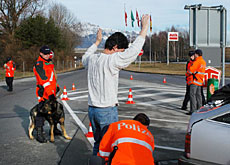
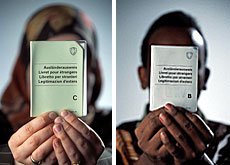
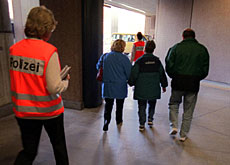
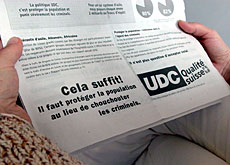
You can find an overview of ongoing debates with our journalists here. Please join us!
If you want to start a conversation about a topic raised in this article or want to report factual errors, email us at english@swissinfo.ch.